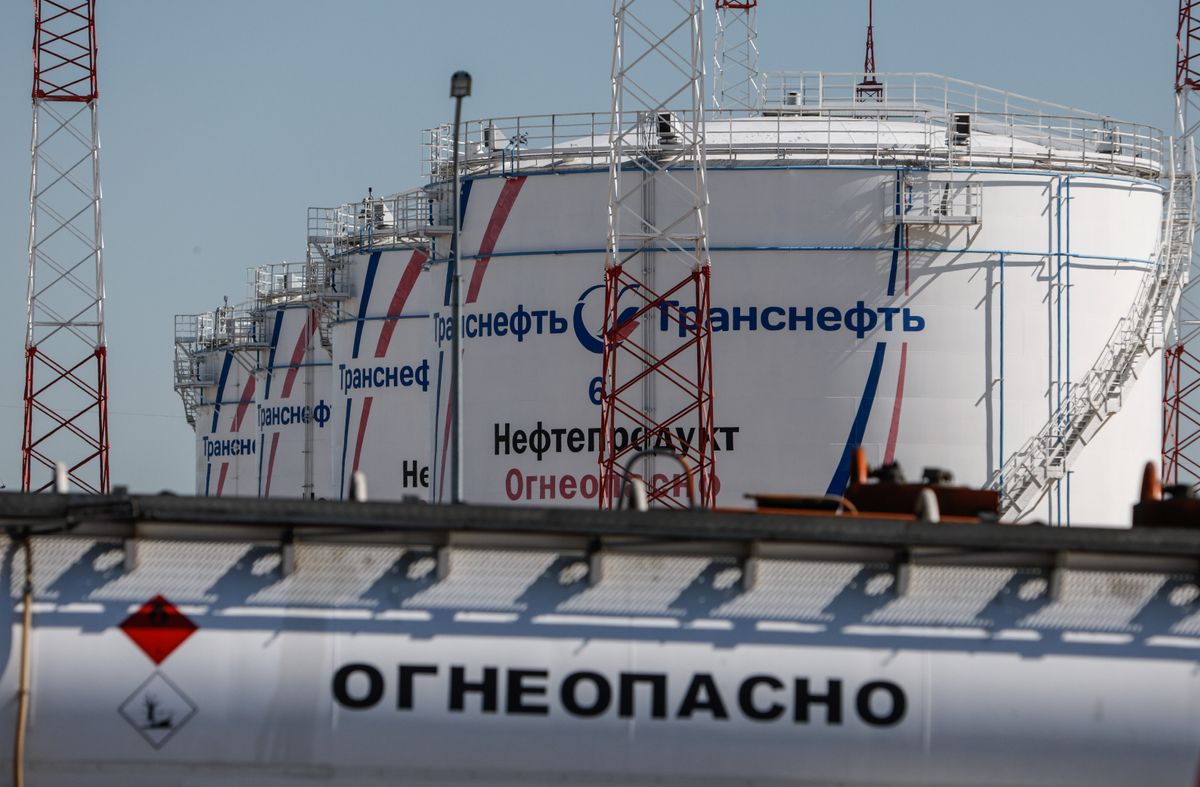G7 agrees on a Russian oil price cap at US$60 per barrel, but Russia says it won’t accept it
The US has already banned Russian oil, and the UK plans be rid of it by the end of the year.

A few minutes every morning is all you need.
Stay up to date on the world's Headlines and Human Stories. It's fun, it's factual, it's fluff-free.
Before invading Ukraine, Russia was the biggest oil supplier to Europe. In fact, in 2021, it exported over half of its oil to European countries. So since the invasion, Europe has been trying to be less dependent on Russia's crude. But still, Russian oil demand remains pretty stable even with Western sanctions targeting Moscow. And this means revenue is still flowing into Putin's coffers to fund the war.
The US has already banned Russian oil, and the UK plans be rid of it by the end of the year. In September, G7 nations announced they planned to cap the oil price at US$65-70 for Russian crude to reduce Moscow's profits. With this plan, Russia can keep selling its oil, but it will earn much less. But, Poland disagreed with the proposed price cap and said that the price limit should be lower.
But, on Friday, G7 nations and Australia finally approved the plan after Poland agreed to support a cap that keeps the price 5% lower than the market rate. The plan will start December 5, and participating countries won't pay more than US$60 per barrel for Russian oil. They're also refusing to insure tankers shipping oil priced higher than the cap, which will make it hard for Russia to sell oil priced higher.
Ukraine President Volodymyr Zelenskiy criticized the price cap as "a weak position," saying it wasn't "serious" enough to ruin the Russian economy. After the announcement, Russia said it would not accept the price cap and it's deciding how to respond. Russia still has a market for its oil with China and India, who've become the two biggest buyers of Russian crude in the meantime.
Key comments:
"The key point in our view is the signal that the G7 seeks to keep Russian oil on the market," said Joel Hancock, an analyst at Natixis. "The market has shifted to a view that Russian crude oil exports will remain more resilient than previously expected and largely unaffected by the price cap."
"It will help us stabilise global energy prices, benefiting emerging economies around the world," said the European Commission President Ursula von der Leyen on Twitter.
"With Russia's economy already contracting and its budget increasingly stretched thin, the price cap will immediately cut into Putin's most important source of revenue," said US Treasury Secretary Janet Yellen in a statement.
"Russia has already caused huge losses to all countries of the world by deliberately destabilising the energy market," said Ukraine President Volodymyr Zelenskiy. "[It is] only a matter of time when stronger tools will have to be used."
"We will not accept this cap," said Kremlin spokesman Dmitry Peskov according to RIA news agency. "Starting from this year Europe will live without Russian oil."




Comments ()